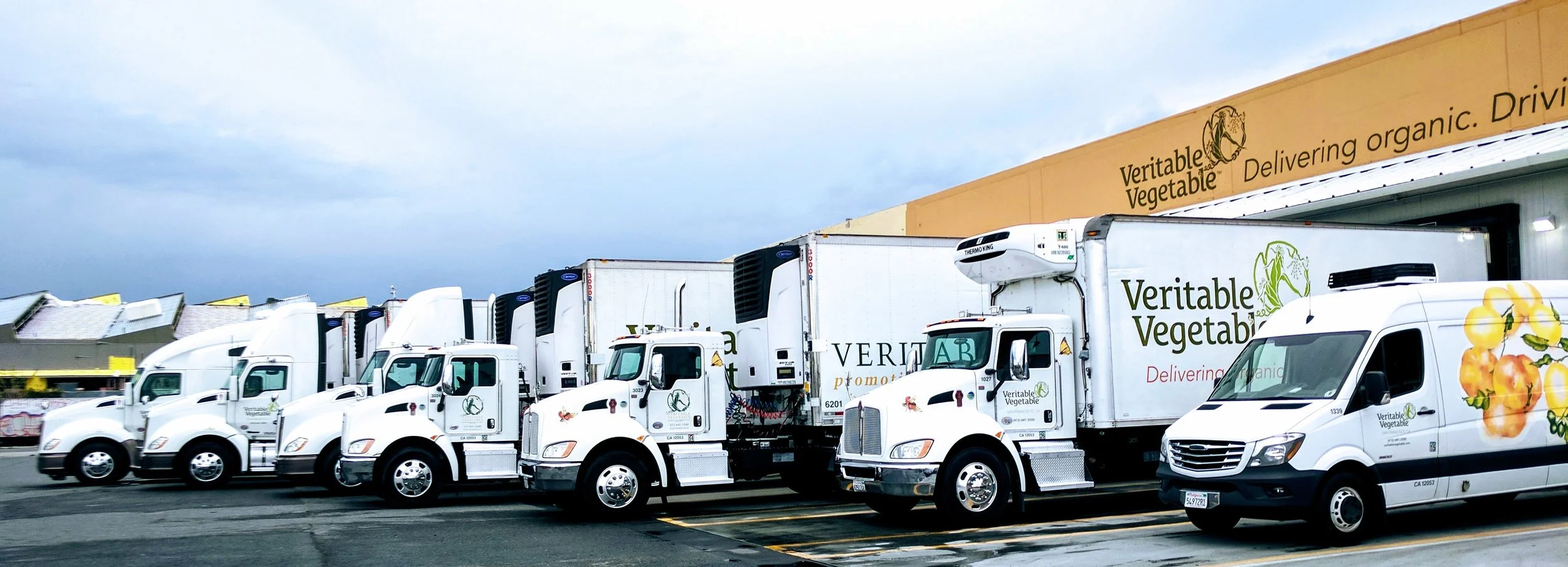San Francisco, CA—Veritable Vegetable, a San Francisco-based organic produce distributor, has become the first Legacy Business to enroll in CleanPowerSF’s SuperGreen program, which provides 100 percent renewable energy service.
“We are thrilled Veritable Vegetable has elected to upgrade to 100 percent renewable energy,” said San Francisco Public Utilities Commission (SFPUC) General Manager Harlan L. Kelly, Jr. “More and more businesses and residents across San Francisco are choosing the SFPUC to provide safe, clean and reliable power. We have a proven track record of delivering affordable power that meets our City’s climate actions goals. That is why the partnership between the SFPUC and our community has been so successful.”
The SFPUC operates CleanPowerSF, which offers two choices for cleaner energy. The Green service program is 48 percent renewable, and the SuperGreen service is 100 percent renewable. As a SuperGreen customer, Veritable Vegetable will source 100 percent renewable electricity—currently generated primarily from a California-based wind project—for its 44,000 square-foot warehouse and office located on Cesar Chavez Street.
“Veritable Vegetable is proud to be the first San Francisco Legacy Business to join CleanPowerSF’s SuperGreen service,” said Veritable Vegetable Chief Executive Officer Mary Jane Evans. “As a values-driven company, we are committed to environmental sustainability in every aspect of our business. From our near-zero emission truck fleet to the solar panels on our roof—we are always striving to consider our impact and reduce our energy consumption. We hope other San Francisco businesses will join us in our commitment.”
Legacy Businesses such as Veritable Vegetable are companies that have operated in San Francisco for 30 years or more with no break in operations exceeding two years. In addition, they contribute to the neighborhood’s history and identity and commit to maintaining the physical features or traditions that define the business. Businesses are nominated by the Mayor or a member of the Board of Supervisors and reviewed by the Small Business Commission. Veritable Vegetable was added to the Legacy Business Registry in May 2019.
CleanPowerSF launched in 2016 with a mission to provide San Francisco residents and businesses with the choice of having their electricity supplied from clean, renewable sources at competitive rates. Following the largest and last enrollment period in April of this year, CleanPowerSF now serves more than 376,000 customers in San Francisco, a 360 percent increase from the year prior. With a 96 percent participation rate, the program is popular among businesses and residents.
Along with CleanPowerSF, the SFPUC operates the Hetch Hetchy Regional Power System, which provides 100 percent greenhouse gas free energy to public facilities, such as City Hall, San Francisco International Airport, Muni buses, schools and libraries. Collectively, the two systems meet approximately 80 percent of the electricity demand in San Francisco.
About the San Francisco Public Utilities Commission
The San Francisco Public Utilities Commission (SFPUC) is a department of the City and County of San Francisco. It delivers drinking water to 2.7 million people in the San Francisco Bay Area, collects and treats wastewater for the City and County of San Francisco, and generates clean power for municipal buildings, residents, and businesses. The SFPUC’s mission is to provide customers with high quality, efficient and reliable water, power, and sewer services in a manner that values environmental and community interests and sustains the resources entrusted to our care. Learn more at www.sfwater.org.
About Veritable Vegetable
Veritable Vegetable is the oldest organic produce distribution company in the country and has been an industry leader in the organic trade for over 45 years. Women owned and led, the company has helped impact policy change, create inroads and markets for small and mid-sized organic growers, and increase the amount of organic food available in San Francisco and throughout California, Nevada, Arizona, Colorado, New Mexico and Hawaii. Their environmental efforts have been widely recognized, and include diverting 99 percent of waste from landfill, running a near-zero emission fleet of trucks, and offsetting energy usage with a 560-panel solar-array.

